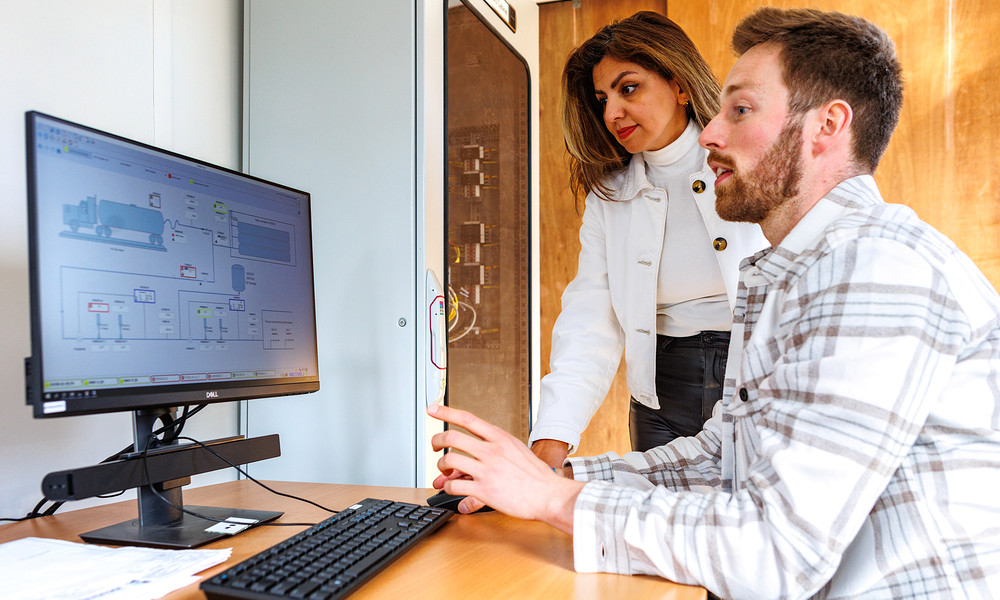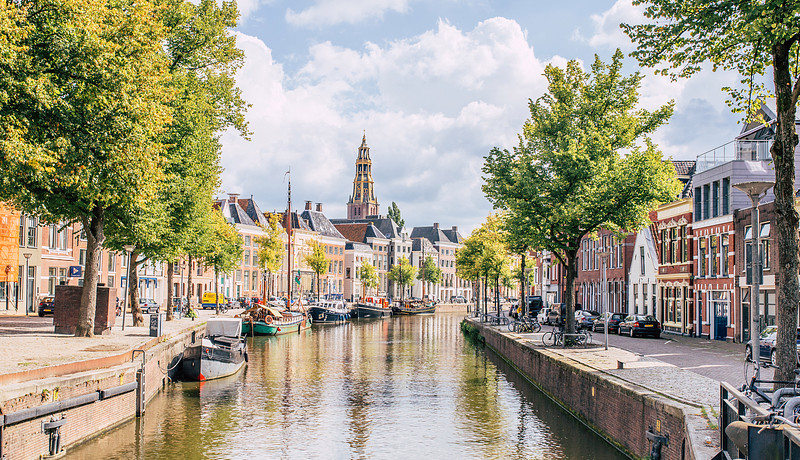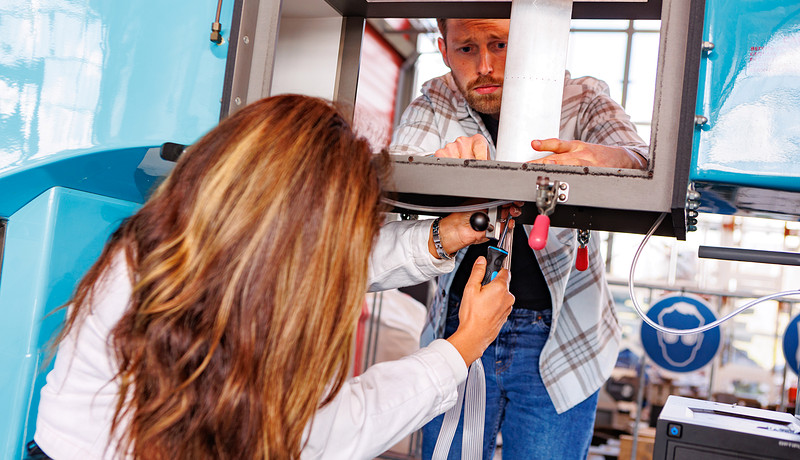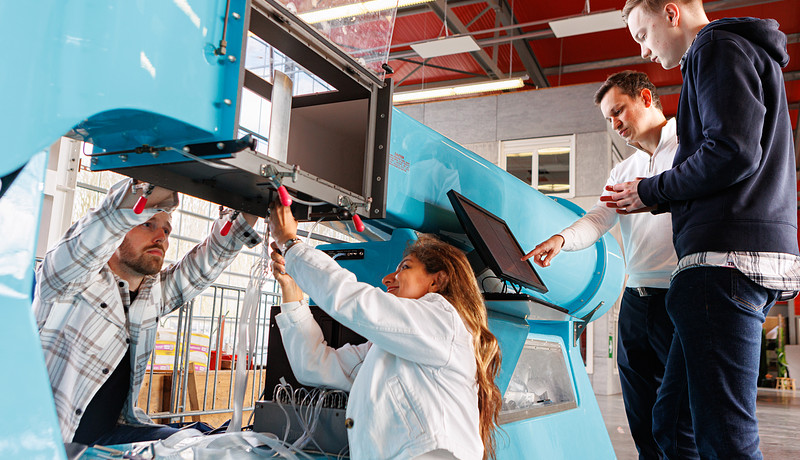Hydrogen, a key role in the renewable energy transition?

Hydrogen in the Energy Transition
- Level
- Language
- English
- Credits
- 30 ECTS
- Startmonths
- Start: February
- Locations
- Groningen
Do you want to contribute to the switch from fossil fuels to renewable energy? Are you an engineer who can think creatively? Who wants to take on a challenge? And who can work in multiple disciplines? Then the programme Hydrogen in the Energy Transition might be something for you!
In this programme, you will work in a multidisciplinary team on a topical issue in the market, in which hydrogen will be used as an energy carrier. Think, for example, of making an industrial plant completely off-grid or expanding a hydrogen production facility with a link to hydrogen storage and distribution systems. Hydrogen will play an important role in our energy systems in industry, the built environment and mobility. There are plenty of exciting projects that you can contribute to!
We teach with the principle that you only really learn when you have the opportunity to apply what you have learned. Therefore students are able to directly apply their knowledge by working on actual projects in the industry. You will acquire a lot of knowledge while doing the project.
However, there is a training course with lectures for all the teams:
- An overarching training in safe design of hydrogen plants
- A workshop on legislation in the energy transition
You will learn by working on a relevant and complex problem in a multidisciplinary setting. You will gain insight into other disciplines and you will acquire new knowledge from a direct need for that knowledge in a project.
The programme will provide lectures/training in sub-areas that are determined by the knowledge demanded by the project. Depending on the expertise, these lectures will be given by subject teachers, EnTranCe experts or external guest lecturers. EnTranCe provides expertise from the professorships Hydrogen and System Integration.
| Project Hydrogen phase 1: Analysis | 10 |
| Project Hydrogen phase 2: Design & Advice | 10 |
| Project Hydrogen phase 3: Personal Development | 10 |
Take a look at the ECTS course catalogue (please look at 'exchange programmes') for more information.
Students who apply for this programme are expected to do the whole programme of 30 ECTS credits. Please note that the schedule for this programme may vary from week to week. The programme is intensive and students are expected to be available and present for the whole duration of the programme.
Before you can start
The programme is offered in the third year of a (4-year) bachelor programme. Students need to have completed 120 ECTS credits (4 semesters) at undergraduate level in the field of Mechanical Engineering, Electrical Engineering, Industrial Engineering & Management, Built Environment or Chemical Engineering. Other backgrounds might be welcome, but after consultation.
Admission & application
Please check with your home university whether there is an agreement set up with the Hanze School that is offering the exchange programme of your choice. To apply for and be admitted for our exchange programme you should take the following steps
-
1. Be nominated by your home university
Once you have been nominated, your nomination will be checked by us and confirmed to your home university by email. You will receive your application link during our application period.
-
2. Submit your online application
Once you have been nominated by your home university you will receive a personal application link and the application instructions during our application period. The application is fully digital and documents do not have to be send by email or postal mail. Make sure you do not miss our application deadline!
-
3. Letter of Acceptance
Once you have submitted your application we will check your documents. If you have to re-submit any documents, we will let you know. We will be sending out Acceptance Letters from the beginning of May when you start in September and from the middle of October when you start in February.
Find out more about our application process and practical matters.
Frequently Asked Questions
Contact
-

Oscar Grooten
Onderzoeker






